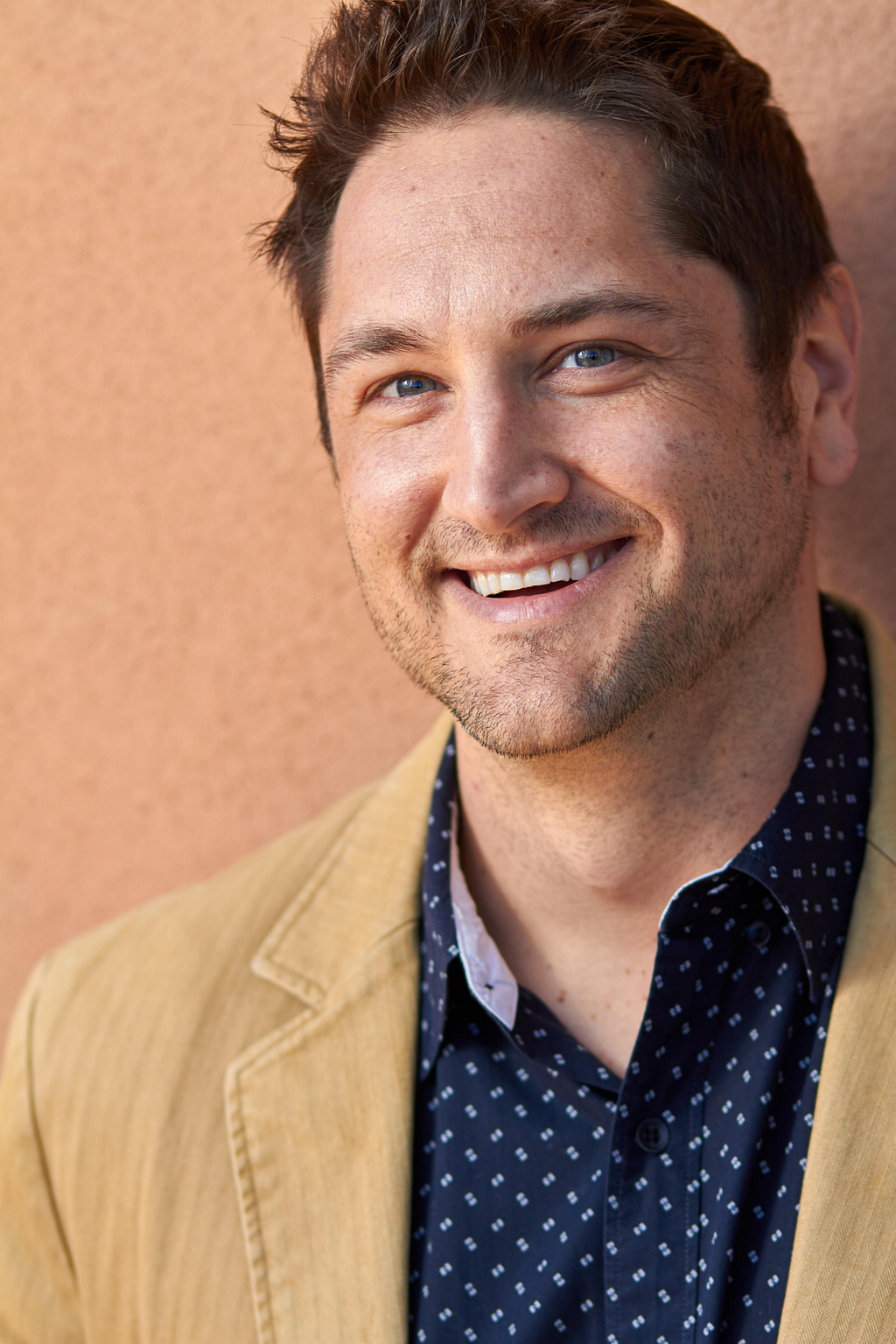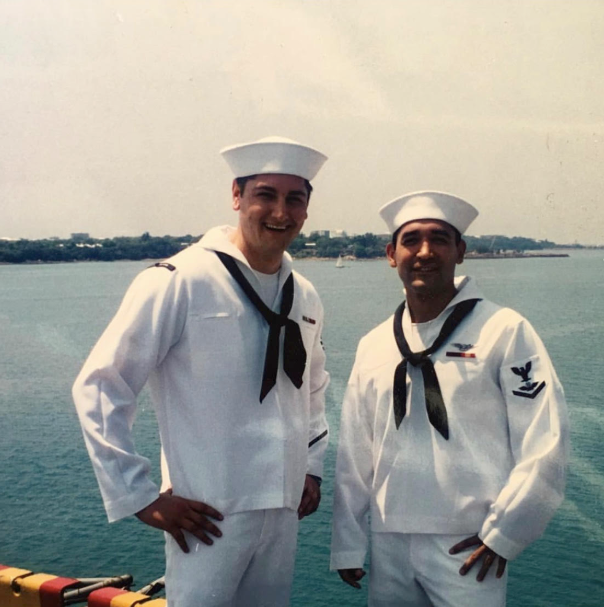An Interview With Candice Georgiadis

I spent years accruing experience doing what I love and surrounding myself with other successful entrepreneurs. As success came in each endeavor, I realized that I do have the ability to lead and create the life I want.
As a part of our series about how very accomplished leaders were able to succeed despite experiencing Imposter Syndrome, I had the pleasure of interviewing David Metzler, CEO of CBDCapitalGroup. David is currently the CEO of CBDCapitalGroup, an investment and scaling company that acquires and develops mid-stage CBD and hemp nutraceutical companies to promote both financial and professional success. Metzler specializes in entrepreneurship and has closed over $30 million over the last eight years in both investment capital and business development deals for his last two companies. His first venture, OneHealth, grew to over 60 employees after he secured approximately $16 million of venture capital funding. Metzler expanded his second company, Wildfire, Inc., to 450 studio locations across the U.S. As CEO of CBDCapitalGroup, Metzler is passionate about helping other entrepreneurs succeed through his experiences and proving them with the necessary resources.
Thank you so much for joining us, David! Our readers would love to “get to know you” a bit better. Can you tell us a bit about your ‘backstory’?
Prior to becoming an entrepreneur, I served in the U.S. Navy. While in the Navy, I learned many lessons that continue to impact my everyday life and leadership. One of the most important lessons I carry with me every day is that some people are watchers while others are doers and will make an impact in the world. Following the Navy, I went to Columbia University and began my career in Investment Banking then Venture Capital at a $650M VC firm. Working with entrepreneurs day in and day out gave me the bug to change the world directly. Finally, I started my own business, OneHealth, which grew to over 60 employees after I secured approximately $16 million of venture capital funding. After selling OneHealth to a major healthcare company, I began Wildfire, Inc. and expanded it into 450 studio locations across the U.S. before starting CBDCapitalGroup.
Can you share with us the most interesting story from your career? Can you tell us what lessons or ‘take aways’ you learned from that?
My biggest business failure/lesson was my last startup, Wildfire. The company was essentially Uber for fitness studios and failed when a $12.5M funding round fell through. On September 22nd, 2015, my Board of Directors got a call from the Private Equity firm saying they were withholding the next tranche of investment (they already put in $1M), and that we would have to find other capital. We had a $250k a month burn because we were intentionally growing faster than normal and expanding our fitness network nationally, so it left us with limited options. They were trying to renegotiate us, and we didn’t accept the new offer and instead, we tried to get a new bridge round together. That round failed, and we had to let go the 24 employees and all tell our users we were closing. It was like losing a child and I remember getting off the phone when we were forced to shut down and crying because I lost everything I had. It was at that moment that I vowed would never happen to me again, and I would protect other honest entrepreneurs from that same outcome. My biggest lesson learned from that experience is to start with companies that are already generating at least $1M in revenue because that is the hardest part. Most failure comes when entrepreneurs run out of passion and energy and that is why at CBDCapitalGroup we are investing in companies that are growing their revenue and helping those founders succeed when they are struggling to scale their business.
What do you think makes your company stand out? Can you share a story?
CBDCapitalGroup stands out amongst other venture capital firms in the cannabis space because we don’t just acquire CBD companies, we work alongside entrepreneurs to help them successfully scale their operations through our experience-based guidance and proving the necessary capital. We are also a data-driven company, so we make decisions based on quantifiable numbers and trends, not only educated guesses. Our first acquisition company, Medix CBD, has completely rearranged their business strategy and is increasing their revenue almost monthly.
None of us are able to achieve success without some help along the way. Is there a particular person who you are grateful towards who helped get you to where you are? Can you share a story?
I have been blessed to have some of the best executives in the country work for me. Nothing world-changing gets done alone, and when you are trying to accomplish billion-dollar moonshots you need the best people to accomplish those goals. One person that stands out is my co-founder at CBDCapitalGroup, Zak Garcia. Zak has had a ton of CMO job offers because of his successful background scaling Bulletproof coffee up to 9-figures. Despite all those options Zak has chosen to be here with me everyday, often without a salary, to make this company successful. Without his help I wouldn’t have been able to get through the last 18 months, and we wouldn’t have successfully acquired two companies with a pipeline of 8 others that want to join us and work with him. I’m honored to work with him everyday and for his sacrifice to make this big dream a reality.
Ok thank you for all that. Now let’s shift to the main focus of this interview. We would like to explore and flesh out the experience of Impostor Syndrome. How would you define Impostor Syndrome? What do people with Imposter Syndrome feel? In my experience, Imposter Syndrome is the feeling that you don’t deserve the success that has come to you and that one day your cover will be folded. People with Imposter Syndrome feel insecure and unsure about their ideas and often look to others for reassurance. Most truly successful people feel this way at some point, because it goes with the territory of doing big things.
What are the downsides of Impostor Syndrome? How can it limit people?
One of the biggest downsides to Imposter Syndrome is never feeling completely sure that you deserve the success that you have achieved. This feeling can lead you to not move forward with entrepreneurial ideas that could help you create the life and world you envision, allow others to dictate your decisions and hold you back from even further success. It also has a tendency towards self-sabotage in a lot of entrepreneurs like me, because when they are successful they don’t feel like they deserve to be and can undermine their accomplishments.
How can the experience of Impostor Syndrome impact how one treats others?
Imposter Syndrome can lead a person to cling to others for advice and help when they doubt themselves. Becoming too reliant on the thoughts of others can inhibit your interpersonal relationship instead of seeing them as independent beings and challenging their thoughts to strengthen their ideas as they do yours.

We would love to hear your story about your experience with Impostor Syndrome. Would you be able to share that with us?
When I first began my career, I was involved in large-scale investment companies. Having graduated from Columbia as a veteran, I climbed the ranks quickly as the company positioned me strategically with important clients that value veterans. As I looked around at the high-level executives around me, I felt like I didn’t deserve to be at the top with them. As a result, I felt like I couldn’t ask the questions necessary to understand a subject because I worried that people will see me as not smart. Knowing that tendency, I created a rule for me that I would only create teams of experts, where I didn’t need to be the “smartest guy in the room”. That allowed me to always be surrounded by the best professionals, and ask all the questions I needed to truly master and solve any situation or problem that arises.
Did you ever shake the feeling off? If yes, what have you done to mitigate it or eliminate it?
Yes, but not without practice. I spent years accruing experience doing what I love and surrounding myself with other successful entrepreneurs. As success came in each endeavor, I realized that I do have the ability to lead and create the life I want.
In your opinion, what are 5 steps that someone who is experiencing Impostor Syndrome can take to move forward despite feeling like an “Impostor”? Please share a story or an example for each.
- Take a look inside yourself and list out your 5 largest strengths that have contributed to your success.
- Think about your career goals for 1, 5 and 10 years from now.
- What are your biggest weaknesses that you’re afraid people will discover and how can you develop those into strengths to achieve the listed goals?
- Surround yourself with other successful people. You are who you surround yourself with.
- Believe in yourself. Take that step. Make those decisions based on what YOU think the best choice is and adapt to what happens and learns.
You are a person of great influence. If you could inspire a movement that would bring the most amount of good to the greatest amount of people, what would that be? You never know what your idea can trigger. 🙂
Don’t just create a company that makes money, create a company that makes money helping people. In my first company we made money helping people recover from addictions and other chronic conditions, and as a result 40,000 people were able to stay sober and clean. In my second company we created a giveback program that everytime someone worked out we helped fight the obesity epidemic by giving an hour of fitness to a child that lost their PE programs. At CBDCapitalGroup we are buying companies that are able to demonstrate that their products heal their customers, and we are giving back to cannabis clinical research. People are sick and suffering, and there are companies and products that can help them heal. That is worth doing, and why I get up everyday to fight that battle.
We are blessed that some very prominent leaders read this column. Is there a person in the world, or in the US, with whom you would love to have a private breakfast or lunch, and why? He or she might just see this, especially if we tag them 🙂
I would love to work with Mitch McMconnel or President Trump (politics aside) and tell them we can use hemp to fight the Opiate epidemic. If they were able to just change the IRS code to allow people to use their pre-tax HSA/FSA to buy CBD/Hemp products that would make a big difference. Right now people can buy synthetic drugs that are extremely addicting much easier then they can natural alternatives. We should make it easier for people to heal with these superior alternatives, but the tax codes need to be updated. I want to help lobby to get those changes made and remove some of the suffering from the 110 million people with chronic pain and diseases.
How can our readers follow you on social media?
This was very inspiring. Thank you so much for joining us!
David Metzler: “How I Was Able To Thrive Despite First Experiencing Impostor Syndrome” was originally published in Authority Magazine on Medium, where people are continuing the conversation by highlighting and responding to this story.

